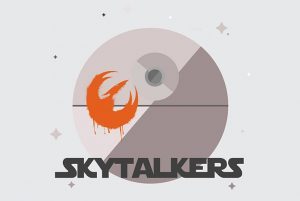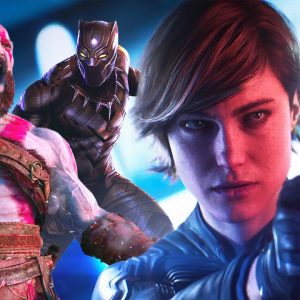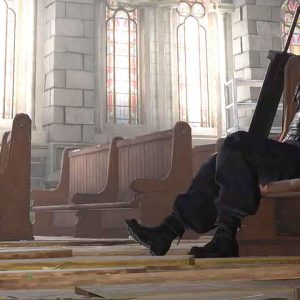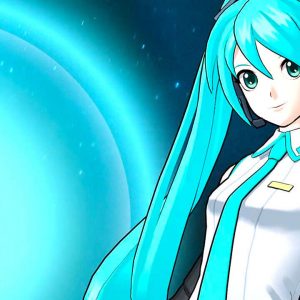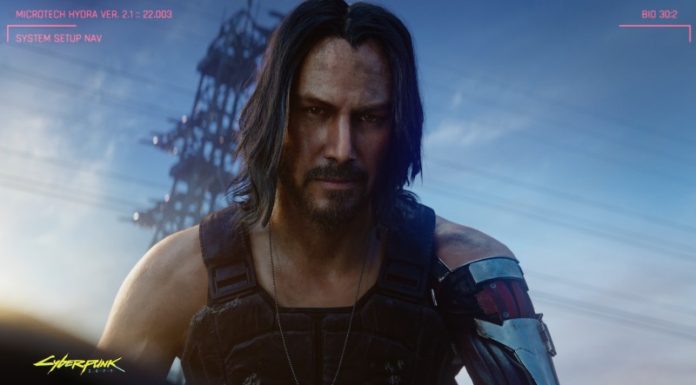For me the disappointment of Suicide Squad: Kill the Justice League isn’t just about its quality. It’s about what it’s not as much as what it is. There’s very little of what made developer Rocksteady’s games so great in the past – near-unparalleled superhero power trips that sit alongside Insomniac’s critically acclaimed Spider-Man series. It’s also the latest in a frustratingly long line of beloved single-player-championing studios delving into unwelcoming loot-infested live-service waters. It’s been a perilous leap for many to make, with success limited to very few not called Bungie, and I hope we’re now at the end of this detrimental trend that’s plagued so many.
In recent years, BioWare abandoned the comfort of its trademark deep RPG writing in favour of Anthem’s cold, hollow, RNG-fuelled exosuits. It was the first real notable example of this happening; a studio ripping apart from its roots to chase high-risk trends popularised by the likes of Destiny. “Anthem was the ultimate expression of that,” BioWare veteran James Ohlen told Rock Paper Shotgun. “It got away from everything. It’s kind of like the anti-BioWare game.”
There have since been others chasing these online looter shooter trends that have rapidly gone out of fashion with each passing year. Arkane brought none of its best-in-class level design to the empty, vampiric streets of Redfall. Crystal Dynamics promised much in its Marvel’s Avengers campaign, but lost its way completely regarding its live-service offerings. And most recently, Rocksteady traded in their expertly designed Gotham for a shallow Metropolis.
Suicide Squad’s main problem isn’t in its art direction, character design, or storytelling (although mileage may vary on that last one). These are all things we’ve come to expect and enjoy from Rocksteady, masters of their craft when it comes to creating superhero open worlds. But while it has largely delivered on that trio of creative disciplines, the studio’s other notable strengths – best-in-class campaign design, genre-leading combat systems, and engaging open worlds – are the areas in which Suicide Squad has stumbled. And that faltering is rooted in the pivot to creating a long-term content delivery machine – AKA a live-service shooter.
In the nine years it has taken the London-based studio to finish work on Kill the Justice League, numerous examples of exactly the same kind of pivot project failing have come and gone, yet no change of direction has seemingly been plotted. That’s likely because of the weight of the AAA machine; like a heavy cruise liner, it can be difficult to change the course of all those resources and staff when the journey begins. But the result of that is a wholly incongruous mess of a looter shooter where bland gunplay makes neither canonical sense nor an engaging gameplay loop.
Gear progression and how it intertwines with talent trees and class abilities is a delicate balance that is by no means easy to achieve. The Borderlands series has historically done it very well, and while the Pandora gunfests do have significant stories told throughout, you always get the feeling that developer Gearbox’s focus is on making the most outrageous and fun arsenal to play with possible. But Borderlands games are, of course, not live-service. Tackling that added demand of a long, long life of ever-expanding content adds a whole new weight on top of all that to balance.
A more pertinent example, then, might be Diablo, which has achieved this as successfully as anyone over the years thanks to Blizzard, a studio whose very DNA is built around online multiplayer experiences. For almost 30 years the developer has refined a game loop completely centered on chasing that next piece of loot. That desire to want to come back repeatedly and grind for the next piece of gear is key to the success of loot-based games, and is what I look for over all else in the genre. Strike gold with that, and even games that possess just a slither of Rocksteady’s storytelling chops, such as 2021’s Outriders, can keep me engaged enough to keep playing thanks to fun weapons and abilities.
One note combat is a common thread between all of these recent failed experiments. Redfall’s selection of identikit weapons didn’t offer anywhere near the sort of malleable approaches that Dishonored’s blades and powers brought to encounters. Although Marvel’s Avengers’ heroes did each have a set of abilities intrinsically linked to their character, the rote defend and capture the objective scenarios you were placed in offered limited thrills. And Anthem’s mission design was near non-existent as you jetted around its open world searching for any semblance of BioWare’s famous quest writing.
Rocksteady created one of the most influential combat systems in the form of Batman Arkham’s counter-based melee flow, and to step away from this and create a gun-based looter shooter was a bold move. Sadly, it just didn’t pay off. Each gun feels fundamentally very similar to the next and last, with interesting perks and alternate fires kept at a real premium. The least you’d expect from a looter shooter is to have interesting loot to shoot with, but the focus on that in Suicide Squad just isn’t quite there. I’m all for developers trying something new in an attempt to avoid things becoming stale, but successful new beginnings are rooted in a recognition of historic strengths. I wish Rocksteady had used its previous top-tier melee combat, dense open world, and thrilling storytelling experience as a base, rather than shifting to what is an almost entirely different development format.
This challenge is something, to its credit, that Sony has managed well with PlayStation Studios. Time is given to each creative team to make the project they want to make, with story-driven single-player games remaining a dominant focus. Naughty Dog has become the standard bearer for this philosophy in the years that Rocksteady has spent making Kill the Justice League. But that isn’t to say they didn’t attempt to branch out to multiplayer in that time, either, with Sony recently cancelling a stuttering The Last of Us online project. We’ll never know how this would’ve turned out, but if recent history has told us anything, it’s that halting development before it rumbles on for years might have been the right move by PlayStation. Something confirmed by Naughty Dog itself in the statement announcing the cancellation:
“To release and support The Last of Us Online we’d have to put all our studio resources behind supporting post launch content for years to come, severely impacting development on future single-player games. So, we had two paths in front of us: become a solely live service games studio or continue to focus on single-player narrative games that have defined Naughty Dog’s heritage.”
That’s not to say that risks can’t and shouldn’t be taken, though, if approached in a sensible and measured manner. Interesting results can come from developers stepping out of their comfort zone and trying something new; dipping their toes into the water before diving headfirst. In regards to PlayStation, Sucker Punch’s Legends expansion to 2020’s Ghost of Tsushima was a well-constructed online co-op offering rooted in its fundamentally exciting sword combat. The experience was scaled appropriately for an experimental DLC, offering a small but rewarding pool of gear for progressing through missions, which culminated in a challenging multi-part raid full of memorable art direction. The key, though, was that this focus was narrow, adding a handful of hours of multiplayer fun onto an already solid single-player base.
I still want to see more Sucker Punch single-player stories, but this smaller-scoped experiment has at least given me confidence that they could make the looter-shooter live-service jump where others have fallen. Maybe it would have been wise for Rocksteady to test out some of Suicide Squad’s online components in an Arkham Knight expansion before fully implementing those ideas nine years later.
Unfortunately, it’s still unclear to see how far those who leaped have fallen. It can’t be a coincidence, though, that these studios all find themselves reverting back to what made them such respected names in the single-player space. BioWare is hoping to recapture that story-driven RPG magic with new Dragon Age and Mass Effect games in development. Arkane has light at the end of the tunnel with Marvel’s Blade being helmed by their Lyon studio, a stealth combat game that hopes are high for. Crystal Dynamics finds itself under the parasitic control of Embracer Group, who has seemingly done nothing but cancel projects and lay off staff since making their huge financial gamble – I hope the Tomb Raider studio manages to survive and thrive again.
I sympathise with all of these developers, none of whom set out to make games that would go on to be considered dead on arrival. Instead, eyes need to be turned towards those making the decisions, whether those be studio heads, publishers, or other executives, on what type of games these studios should make. The list of previously mentioned failures to launch should be the wake-up call needed to stop mismanaging talent and siphoning their passion into projects that benefit neither their developer’s skillsets nor the player’s ultimate enjoyment.
It’s a lesson that Warner Bros. seemingly never learned with Kill the Justice League – although hopefully one they’ve now learned, considering Suicide Squad’s questionable success (as of writing, it’s not even in Steam’s top 100 played games) comes not long after the news that WB’s own Hogwarts Legacy, a single-player open-world story-driven game, happened to be 2023’s biggest-selling game. It’s too soon to say what’s next for Rocksteady, which still has the first steps of its live-service roadmap to make when Joker arrives as a playable character next month. Suicide Squad could buck the trend, becoming a huge success that grows strong as the months and years go on. Warner Bros. will certainly be hoping so. I have my doubts, though. I just hope it does well enough that a studio home to so much single-player talent is allowed to spread its (bat)wings again.
Simon Cardy really does hope this signals the end of the trend. Follow him on Twitter at @CardySimon.
